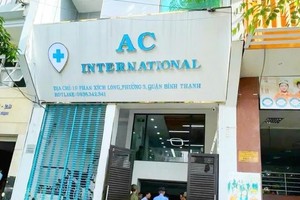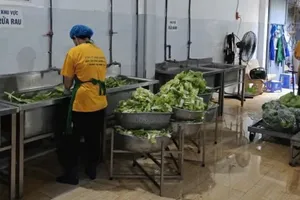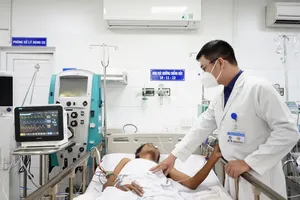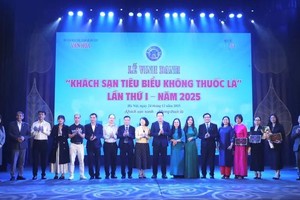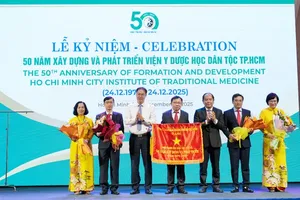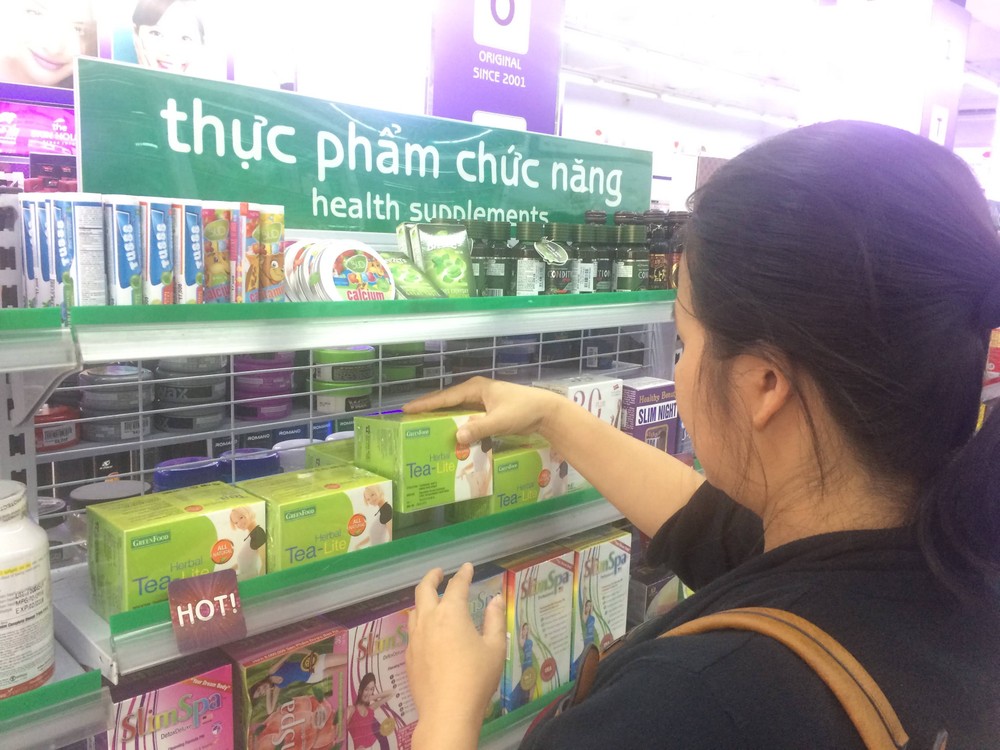
Even, traders have fraudulently advertised their fake goods or poor quality goods on social networks such as Zalo, Facebook and YouTube to sell at exorbitant prices, leading consumers to make inappropriate health-related decisions and economic losses meanwhile, the authorities still face many difficulties in managing this chaotic market and deterring people from violating the regulations.
Recently, the police force in the Northern Province of Bac Giang temporarily detained two executives of Bao Long Duoc Company including 27-year-old Nguyen Thi Hien from Lao Cai Province and Hien's husband Dang Van Thang in the capital city of Hanoi to investigate the act of impersonating a medical doctor or consulting doctor, advertising dietary supplements as medicine, and selling them at high prices.
Previously, the Vietnam Food Administration (VFA) under the Ministry of Health also warned that some health protection foods such as Zamasstu-new, Xavakamit, Botalyzil, and Castodi were advertised causing misunderstanding for customers as medicine. Food and drug watchdogs in many localities such as Da Nang, Lam Dong, Kien Giang, and Ho Chi Minh City, recently have issued many decisions to punish individuals and businesses that boast dietary supplements usage as drugs.
According to statistics from the Vietnam Functional Food Association, in addition to many imported nutritional supplements, the country currently has about 3,100 functional food production and trading establishments that supply over 12,000 products of all kinds for the local market of 100 million people population. Domestically produced dietary supplements account for about 70 percent of the market.
Chairman of the Vietnam Functional Food Association Tran Dang said that currently, the number of people using dietary supplements in our country for health care and protection accounts for about 60 percent of the population over 18 years old. The demand for using functional foods to protect and enhance health is constantly increasing along with the strong development of information technology and social networks.
According to Chairman Tran Dang, nutritional supplements are not only sold at pharmacies but also sold and advertised on many e-commerce platforms, especially on social networks Facebook, Zalo, TikTok, and YouTube with countless different varieties. Anyone who wants to buy such products just clicking on a search button on Google or on Facebook with the phrase like brain-boosting products or enhancing memory for the elderly will have tens of millions of results. Many products are even advertised as miracle drugs, making consumers be willing to spend a lot of money buying some kinds of them.
According to Mr. Nguyen Thanh Phong, Director of the Vietnam Food Administration under the Ministry of Health, currently, the diversity of business forms such as online business, multi-level business, and cross-border advertising makes food watchdogs face many difficulties in management. Worse, many organizations and individual traders of dietary supplements falsely advertise and promote their products as medicine for huge profits.
Although the Ministry of Health has lately coordinated with competent agencies of the Ministry of Information and Communications to throw the book on producers and traders of dietary supplements who have over-advertised false stories online through fake news websites, blogs, banner ads, and social media to sell their products but in reality this market of these products is still very complicated. Worryingly, the practice of impersonating doctors and medical experts calling patients for phone consultation to sell dietary supplements of poor quality is increasing and becoming increasingly sophisticated, Mr. Nguyen Thanh Phong said.
Seeing that many famous people join in stories of advertisements for dietary supplements while their effectiveness and effects have not been clearly evaluated, Ms. Pham Khanh Phong Lan, Head of the Ho Chi Minh City Food Safety Management Board, President of the Ho Chi Minh City Pharmaceutical Association, said that this is related to the Law on Advertising. Celebrities or anyone who advertises dietary supplements or any product need to learn carefully about that product and avoid overstating its effectiveness causing confusion and misunderstanding among consumers if they are people who respect the law and respect themselves.
Additionally, traders and celebs and those participating in the advertisement of nutritional must be considered as scammers as they deceived consumers who have spent a lot of money on buying the product for the trust of celebs or famous people, said Ms. Pham Khanh Phong Lan. She added that the Advertising Law should add strict sanctions for such scams to deter people from committing violations. Ms. Pham Khanh Phong Lan recommended that consumers need to practice caution when intending to buy dietary supplements.



